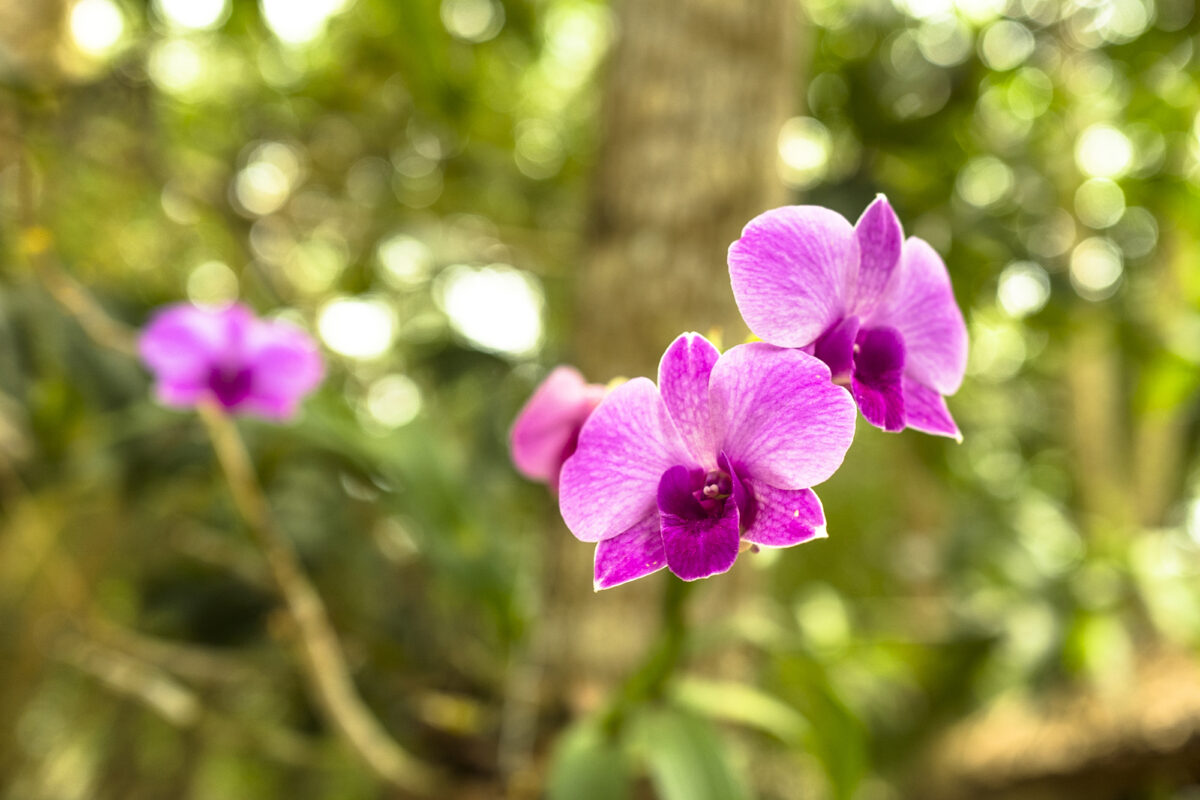If you were to visit Sin Suoi Ho in northern Vietnam, you’d see countless pots of orchids. From street markets to families’ yards, even covering rice fields in the off season, orchids now beautify the community that used to be ruled by opium. The agricultural transformation symbolizes the spiritual story of the Hmong people.
The Hmong people originated in China but began migrating to Laos, Vietnam, and Thailand in the 18th and 19th centuries, seeking freedom from persecution and new farming opportunities. They settled in remote mountain regions, ideal for growing opium. Though opium became a valuable cash crop, it also created a devastating cycle of addiction and poverty. Their traditional spirit worship offered no lasting hope.
Everything started to change in 1977, when the radio reached the Hmong people in Vietnam.
A Voice that Carried Hope
Giang’s* father, Khanh*, was the head of his village in the early ‘80s because of his opium business. In an attempt to keep the Hmong people informed of the outside world, the government gifted his father a radio in the mid-’80s. There was one problem: Giang couldn’t understand Vietnamese. He changed the channel until he heard language, Hmong, on the FEBC broadcast.
On the other end of the broadcast was John Lee, a young Bible college student who grew up in the Hmong culture. From FEBC’s original studio in Manila, Philippines, John Lee shared the Gospel in the Hmong language twice a day. He’d been doing this since 1977 and hadn’t heard much of a response. Then, in the late ‘80s, he started to receive thousands of letters from Hmong people in Vietnam, saying they had accepted Christ and wanted to learn more about their faith. One of those people was Khanh.
From Addiction to Abundance
After listening to John Lee on the FEBC broadcast for four years, Khanh gave his life to Christ, which catalyzed his entire family’s conversion. He then shared the hope of Jesus with his village, suffering through persecution until he saw nearly his entire village accept the Gospel.
God used the voice of John Lee to bring revival beyond Vietnam, reaching Laos and China. It’s estimated that in one year, nearly 100,000 Hmong people committed their lives to Jesus.
Since most early Hmong converts were opium addicts, they faced the challenge of giving up their old lifestyles to practice their new faith. They started feeling convicted over their addiction, with one Hmong believer saying, “We had to stop using opium so that we could shine for other people to know about God.”
Local leaders who became pastors would take addicts on mountain retreats to detox. And by 2005, every Christian in the Sin Suoi Ho village had stopped using opium. But their faith didn’t just change their physical health. It changed everything.
A Village Transformed
After learning in the Bible how all humans are image bearers of God, Hmong parents stopped the practice of demanding bride prices. Instead, they allowed daughters to complete more schooling. They also started taking more initiative to make an honorable living for their families and to care for their community, even its cleanliness. One pastor said, “Now you can see the village looks beautiful. It’s because we use the Bible for living our lives.”
Giang’s village became so beautiful that in 2010 it was a tourist attraction, allowing them to reach more people with the Gospel. Between 2020 and 2024, visitors from 63 provinces and 20 countries came to know Jesus in this once-hidden village.
Giang says about 70% of his village is now followers of Jesus, with nearly all of them listening to FEBC broadcasts. And there are hundreds of churches in his region, with tens of thousands of members. “These broadcasts are our spiritual food,” he shared, “and many in Vietnam first encountered God through FEBC Hmong.”
New Life
Now, orchids bloom where opium once grew. Their beauty is a testimony to the abundant life the Hmong people have in Jesus. Communities once bound by addiction now overflow with hope, faith, and love. And behind it all, God continues to use the faithful voices of local believers, sharing the Gospel over the radio, to nourish the hearts of the Hmong.
Because of your partnership and support, FEBC is able to continue sharing the Gospel with people who are desperate for hope – Thank you!
*Names changed to protect identities


Comments 1
Such a lovely account of the gospel of the grace of Christ.Shame on me and other believers in our country that we don’t share the precious truth of eternal life through our Lord like this precious Hmong gentleman!!